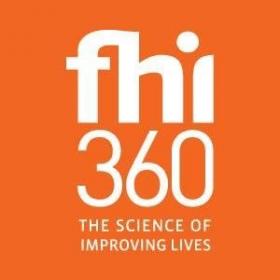The DCOP/Technical Director will be responsible for technical leadership of the program to ensure quality, timeliness, and efficiency of all products and activities generated. S/he will manage the design and implementation of key components of the program description and ensure adherence to global standards of excellence in health service delivery programming. The position will report to the Chief of Party. Recruitment is contingent upon successful award of the project and the selection of the final applicant is subject to USAID approvalchnology.
The Technical Director will have the following responsibilities:
- Cooperate closely with the Chief of Party (COP) on all technical matters.
- Provide strategic leadership and oversight project services.
- Lead design and implementation of HIV prevention, care and treatment and mitigation interventions for epidemic control among pregnant women, children and adolescents.
- Ensure program activities are evidence-based, adapted to local context and reflect state-of-the-art knowledge and best practices for service provision.
- Lead the response to the specified deliverables, goals of grant agreements, ensuring achievements in a timely manner and in full support and compliance with FHI 360 and USAID grant requirements.
- Coordinate the development and implementation of the project technical strategies, adapting global and regional technical resources and tools as needed.
- Oversee a team of technical staff for the project and ensure clear roles and responsibilities and lines of communication are maintained amongst the team members.
- Ensure the technical quality of all project activities through regular field visits and facilitate work planning and regular technical meetings for all consortium partners.
- Identify technical assistance and training needs among project staff, partners, and government counterparts and coordinate technical assistance provision.
- Promote sustainability of project activities with effective networking, coordination and linkages to other programs, partners and counterparts, capacity building of project staff, and institutional strengthening of implementing partners.
- Contribute to the preparation of annual work plans and progress reports in a timely fashion for submission to USAID.
- Represent the project in technical meetings, conferences, and coordination platforms.
- Serve as a program representative in the absence/temporary leave of the Chief of Party
Problem Solving & Impact:
- Solid operational and tactical decision maker with the ability to handle unforeseen issues.
- Decisions and actions have minimal to moderate implications with costs and short term goals of management and the operations of an area within the department.
- Problems encountered are often minimal to moderate; narrowly defined, and require basic approaches to resolve them.
Supervision Given/Received:
- Routine coordination with all employees, on-site and in the field.
- Work well with others; develop and maintain compatibility among project staff, subcontractors, consultants and recipients of assistance.
- Provides guidance to department staff on professional development, including identification of opportunities for in-house training on various aspects of evaluation and research design and health services research for staff as needed.
- Provides guidance and/or leading the development of customized conceptual models and qualitative research and evaluation research.
- May supervisor small number of staff.
- Master's Degree or higher in public health, health communication, social sciences, or a closely related field is required; a medical doctor with experience in HIV prevention and pediatric care and treatment is strongly preferred.
- At least 10 years’ experience in clinical care and public health.
- Experience in programming for vulnerable children and youth will be a plus.
- Experience providing direct leadership of professional and support staff, and oversight and evaluation of staff performance and deliverables.
- Experience in providing mentorship at the regional, national and local level.
- Experience with a USG cooperative agreement preferred.
- Demonstrated ability to create and maintain effective working relations with host country government personnel, stakeholders, NGO partners, and international donor agencies.
- Fluency in English required.
- Strong interpersonal, writing and oral presentation skills in English.
- Ability to work independently and manage a high-volume work flow.
- Relevant computer software skills, including at a minimum, MS Office, etc.
Experience:
- At least 10 years’ experience in clinical care and public health.
- Experience in programming for vulnerable children and youth will be a plus.
- Experience providing direct leadership of professional and support staff, and oversight and evaluation of staff performance and deliverables.
- Experience in providing mentorship at the regional, national and local level.
- Experience with a USG cooperative agreement preferred.
- Demonstrated ability to create and maintain effective working relations with host country government personnel, stakeholders, NGO partners, and international donor agencies.
- Fluency in English required.
- Strong interpersonal, writing and oral presentation skills in English.
- Ability to work independently and manage a high-volume work flow.
- Relevant computer software skills, including at a minimum, MS Office, etc
Typical Physical Demands:
- Typical office environment.
- Ability to sit and stand for extended periods of time.
- Ability to lift 5-50 lbs.
Technology to be Used:
- Personal Computer, Microsoft Office (i.e. Word, Excel, PowerPoint, etc.), e-mail, telephone, printer, calculator, copier, cell phones, PDAs and other hand held devices.
Travel Requirements:
- 10%-25%
